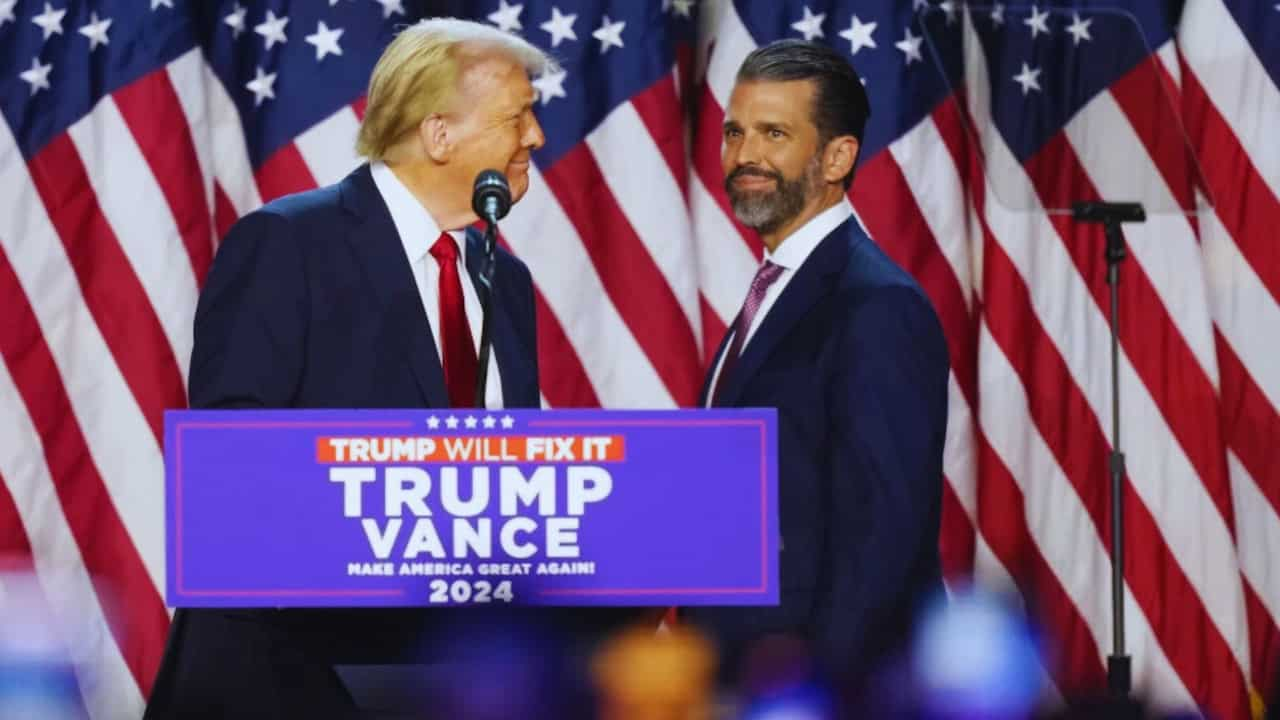Trump’s Bold Cabinet Picks Signal Major Washington Shake-up, Drawing Both Support and Criticism
In a series of dramatic moves that have sent shockwaves through Washington, President-elect Donald Trump has unveiled his controversial picks for key Cabinet positions, setting the stage for what could be a contentious confirmation process in the coming months.
The nominations, which include Matt Gaetz for attorney general, Pete Hegseth for defense secretary, and Tulsi Gabbard for director of national intelligence, represent what Trump’s team calls a deliberate strategy to “disrupt” the Washington establishment.
Donald Trump Jr. defended these unconventional choices on Fox News’ “Sunday Morning Futures,” arguing that the pushback from traditional power centers proves they’re exactly the kind of change agents voters demanded.
“The reality this time is that we actually know what we’re doing. We actually know who the beneficial guys and the evil guys are,” Trump Jr. stated, drawing a sharp contrast with his father’s first term appointments in 2016. He emphasized that loyalty and commitment to Trump’s agenda now take precedence over traditional political experience.
However, these nominations face significant hurdles. The selection of Gaetz has sparked particular controversy due to an unreleased House Ethics Committee investigation. House Speaker Mike Johnson faced tough questioning from CNN’s Jake Tapper about his refusal to release the report, citing jurisdiction limitations over former House members.
The transition team appears ready for potential confirmation battles. Trump Jr. revealed they have “backup plans” with “lists of 10 or 12 people for every position.” Senate Majority Leader John Thune has even floated the possibility of using recess appointments to bypass Senate confirmation if necessary.
Across party lines, some selections have sparked controversy. The nomination of Robert F. Kennedy Jr. to lead Health and Human Services has drawn criticism due to his controversial stance on vaccines. Similarly, Gabbard’s appointment has faced scrutiny over her past statements regarding Russia and Syria.
Republican Senator Eric Schmitt of Missouri defended the picks, calling this a “once-in-a-lifetime opportunity to deliver change and take on permanent Washington.” He emphasized the importance of having trusted individuals who can implement real reform within federal agencies.
The stark departure from traditional Cabinet selections reflects a broader strategy shift. Unlike Trump’s first term, where he drew heavily from business and establishment Republican circles, these picks suggest a preference for loyalists who align with his “America First” agenda, even if they lack conventional qualifications.
Critics, including some Republicans, worry these nominations prioritize personal allegiance over experience and competency. However, supporters argue this is precisely the point—to break from the bureaucratic status quo that they believe has failed ordinary Americans.
The coming weeks will test whether these controversial picks can secure Senate confirmation. With Republicans holding a slim majority, every vote will count. As Trump Jr. noted, while they’re “going with the strongest candidates first,” the administration stands ready to pivot if needed.
This high-stakes political drama underscores a fundamental shift in Republican Party dynamics, where traditional credentials appear to carry less weight than loyalty to Trump’s vision for America. Whether this strategy proves successful could shape not just the next four years, but the future of American politics.
